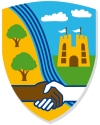The internet hold a wealth of information, but unfortunately, not all of this is helpful, true and pleasant. There is plenty of misinformation, hoaxes, scams and harmful challenges that can affect children (and adults).
A good place to start to find out more is the NSPCC Fake news, hoaxes and misinformation webpage
You can also find some general information below, along with some useful links for parents to find out more.
Colebourne approach with children: We aim to teach children about online hoaxes and challenges in general terms and aim to avoid giving specific and fueling or glamorising the issues. This is covered through our Computing curriculum, PSHE curriculum and through whole school and class assemblies.
PARENT INFORMATION AND LINKS
HOAX
A hoax is a deliberate lie designed to seem truthful. The internet and social media provide a perfect platform for hoaxes, especially hoaxes about challenges or trends that are said to be harmful to children and young people to be spread quickly.
At Colebourne, we evaluate Hoax events that may impact on families and children. We consider each hoax on a case by case basis and decide how to deal with these accordingly. For parents, the Colebourne Facebook page is often used to share general Hoax information. On many occasions hoaxes are unlikely to have an impact on children so many are not shared.
ONLINE CHALLENGES
An online challenge will generally involve users recording themselves taking a challenge and then distributing the resulting video through social media sites, often inspiring or daring others to repeat the challenge. Whilst many will be safe and fun, others can be potentially harmful and even life threatening.
If we are confident children are aware of, and engaged in, a real challenge that may be putting them at risk of harm, then it would be appropriate for this to be directly addressed in school. We carefully consider how best to do this – for example it may be appropriate to offer focussed support to a particular age group or individual children at risk. We are also very aware that, even with real challenges, many children and young people may not have seen it and may not be aware of it. We carefully weigh up the benefits of school-wide highlighting of the potential harms related to a challenge against needlessly increasing children and young people’s exposure to it.
ONLINE LINKS AND RESOURCES
- online safety alerts: think before you scare provides information on why sharing warnings can be counterproductive
- the ‘digital ghost stories’ report looks at the impact and risks of hoaxes
- UK Safer Internet Centre provides advice for school on responding to online challenges
- Samaritans shares information about challenges relating to suicide and self-harm research into online suicide challenges
- Thinkuknow: helping adults protect children from online harm
- Parent Info: help and advice for families in a digital world
- Internet Matters: helping parents keep their children safe online
- NSPCC: online safety
- London grid for learning (LGfL): online safety
- UK safer internet centre: Tips, advice, guides and resources to help keep your child safe online
- Childnet international: parents and carers toolkit
- Parentzone: experts in digital family life
- LGfL: parents – scare or prepare
- Thinkuknow: what to do if there’s a viral scare online
UPDATED: April 2023
